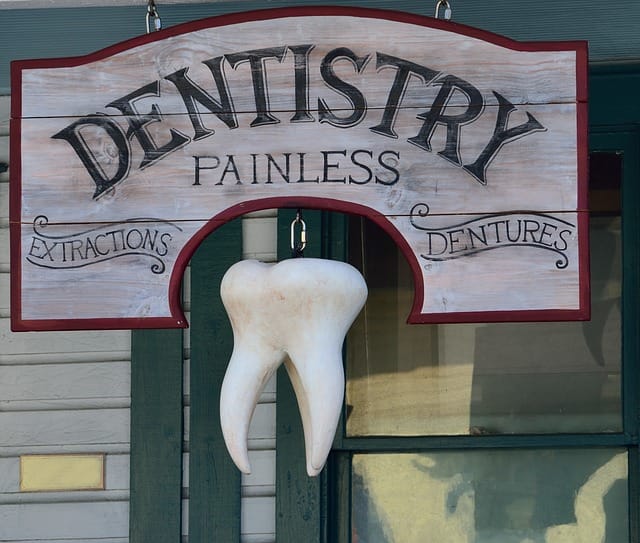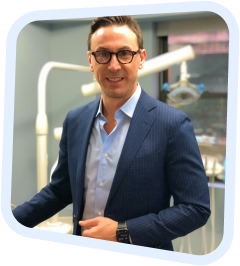Why You Should Choose “Sleep Dentistry”
There are many reasons to talk to your dentist about sedation dentistry. Whether you feel nervous about a procedure or you’re worried that it’ll be uncomfortable, sedation can help put those fears and frustrations to rest and make your next dental appointment more pleasant. If you’re nervous about your next dental procedure or worried about comfort, you should consider these 5 benefits of dental sedation.
1. Dental Sedation Can Reduce Anxiety
Dental anxiety and dental phobia are real medical concerns. 60% of people around the world admit to having some kind of fear about the dentist. Most patients’ fears are unfounded. Others have sadly had unpleasant visits to the dentist in the past that leave them a bit nervous about another experience. Still, visiting the local dentist can these patients fill with dread. As a result, they may avoid going to the dentist altogether, putting their oral health at risk.
Naturally, if you have a fear of the dentist, you’ll want something to help you overcome that fear so you can maintain your oral health. The greatest benefit of dental sedation is that it can help calm you before, during, and after your procedure. This helps put you at ease, so you can receive treatment. The last thing you want is to put off preventing something curable like early stage gum disease.
2. Sedation Dentistry Can Lower Discomfort
You don’t need to have a fear of the dentist to ask about sedation dentistry. Patients who have to undergo extensive dental treatment should also ask about sedation as it can help keep them feel comfortable and relaxed during long procedures.
The anticipation of pain can make you tense up. Patients with low thresholds to pain, sensitive gag reflexes, and sensitive teeth should also look into dental sedation as it can help relax during their next dental appointment. And relaxing is an easy way to reduce your overall discomfort during any dental procedure.
It’s important to note that dental sedation by itself can help reduce anxiety and discomfort. However, for pain management, your dentist will provide you with anesthetics.
3. There Are Several Options of Sedation Dentistry
The type of sedation you’ll want depends on your fears, worries, and the type of procedure you’re facing. If you’re afraid of feeling too sedated, then you’ll want to choose laughing gas instead of IV or oral sedation. However, if you have severe anxiety around dental appointments, then IV sedation would be a better option. Luckily, there are several options for you to choose from so you feel the most comfortable during your next dental visit.
Laughing Gas (Nitrous Oxide)
This is the most common type of dental sedation. Before the procedure, the dentist will place a mask over the patient’s nose and ask them to breathe regularly. Laughing gas works quickly, calming the patient before the procedure begins, reducing anxiety and increasing pain tolerance. It also wears off quickly.
Oral Conscious Sedation
Oral sedation involves patients taking a prescribed pill before a procedure to help reduce anxiety. Patients usually take the pill an hour before treatment so that when they arrive at the dentist, they’re already calm. They’re conscious and responsive during treatment but drowsy.
IV Sedation
Intravenous (IV) sedation (also known as conscious sedation) helps further reduce anxiety and discomfort. During IV sedation, a board-certified anesthesiologist will sedate the patient. The medication acts fast as it enters the bloodstream. Under IV sedation, patients will still be conscious, but much less aware during the visit.
4. Dental Sedation Is Safe
Sedation dentistry is a safe practice with minimal side-effects when administered by trained professionals. Most dentists have training on how to administer laughing gas. However, oral health care professionals require additional training to administer oral and IV sedation. This means you’ll be in good hands with a thoroughly trained and trusted professional.

Keep in mind that if you have diabetes, hypertension, any cardiac or respiratory diseases, you’ll need to share this information with your dentist beforehand. And make sure you mention any allergic reactions you’ve had to anesthesia in the past.
5. Recovery Time Can Be Quick
Depending on the method of sedation dentistry you choose, your recovery time can be very quick to relatively quick. Laughing gas will wear off around 2 minutes after you stop breathing it in. Both oral and IV sedation require more time with IV sedation taking longer to fully wear off. However, you should feel fine after a good night’s rest.
Ask Your Local Dentist About Dental Sedation
Don’t let anxiety prevent you from seeking dental treatment. Maintaining your oral health isn’t just about cosmetic dentistry, it’s about preventing dangerous diseases like periodontitis that could affect your overall health. If you’re nervous about seeing the dentist or curious about the benefits of dental sedation, then you should reach out to a dentist near you.
And if you live in the New York area, then you should check out Advanced Dental Arts. We’re a top-rated, New York City-based dental practice. Experience a staff of board-certified dental specialists ready to help keep you smiling long after you leave our offices.





